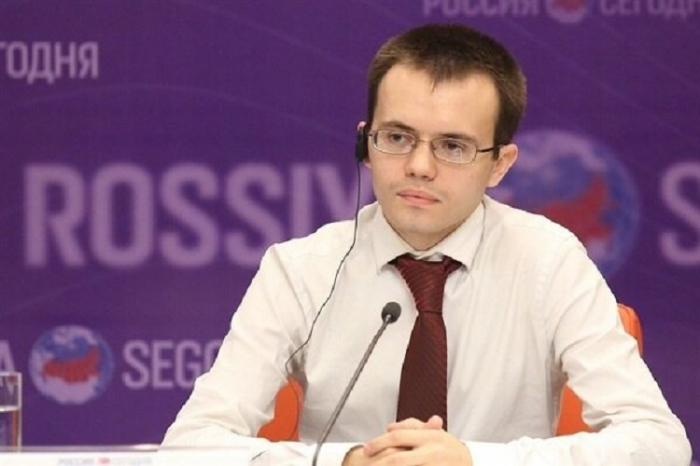The scandalous “Pandora Papers” that were released earlier this month attempted to implicate Azerbaijan President Aliyev in impropriety. He strongly refuted the innuendo being made about his family's reported financial activities by saying the following to an Italian newspaper in a recent interview:
“To be honest, I didn’t read what was written in the documents. I was informed, and there is perhaps five percent of the truth. The rest is a lie...After becoming president, I stopped being directly involved in business and transferred the business to my family. You will probably understand that unlike other people in the West, who left their entire heritage to cats and dogs, in Italy and Azerbaijan we honour family values. Therefore, I gave my whole business to children. They are continuing the business. They mainly invest in Azerbaijan. They also have investments outside Azerbaijan. All their business activities are transparent and internationally verified, and no one can claim that something is wrong here.”
Everything that he said is true, which therefore raises the question of why he was so maliciously targeted in the massive leak of these alleged documents. From the looks of it, the motivation appears to have been to publicly smear him in the eyes of his people and the international community.
Sputnik published an article which presents some further insight into the matter. Titled “Soros-Funded Group Releases 'Pandora Papers' Allegedly Exposing 'Offshore Secrets' of World Leaders”, it draws a connection between the infamous regime change-obsessed billionaire and this month's international scandal.
Soros is antagonistic towards Azerbaijan, and the NGOs that he's funded have actively tried to stir up anti-government trouble there in the past. He operates on the supposed premise of supporting so-called “open societies”, “transparency”, and “accountability”, but these are just covers for his political meddling.
President Aliyev's inclusion in the “Pandora Papers” suggests an attempt to externally rekindle anti-government movements in Azerbaijan on these bases. The country's leader is unprecedentedly popular after last year's victory over Armenia in the Patriotic War so this effort is doomed to fail.
Nevertheless, it signals that the South Caucasus state is still on Soros' radar. If domestic perceptions can't be manipulated against President Aliyev, then the Hungarian-American financier hopes to at least influence international ones against him and his country.
Curiously, Soros' intentions mirror those of the influential Armenian lobby that's been trying to do this for the past two decades already. This observation suggests that non-state actors are leading information warfare campaigns against Azerbaijan and its leader.
While Soros and the Armenian diaspora each have their own self-interested reasons for doing so, this modus operandi conveniently enables state actors to retain a degree of so-called “plausible deniability” by working through such proxies. The next logical question becomes oneof why they want to smear Azerbaijan abroad.
This country has increasingly practiced an independent foreign policy that's very impressive for its size and location. Armenia, by contrast, is incapable of following in Azerbaijan's footsteps for obvious geopolitical and geo-economic reasons while Soros' American hosts are uncomfortable with Baku's pragmatic policies.
To explain the second-mentioned observation, the US practices a divide-and-rule policy in Eurasia aimed at expanding the strategic opportunities for it to control the supercontinent. This necessitates a network of politically compliant partners who essentially serve as vassals.
Azerbaijan is no such country nor was it ever no matter how much some American policymakers might wish that it was. Baku's pragmatic engagement with Ankara, Beijing, Islamabad, Moscow, and even Tehran complicates Washington's divide-and-rule policy in this geostrategic space on the supercontinent.
This could explain the motivation that it might have for working through Soros and his vast network of NGOs by proxy in order to put pressure on Azerbaijan to compromise on its national interests in exchange for relief from fake news-driven smears spread by the billionaire financier.
In any case, neither the Armenian diaspora, Soros, the Armenian state, nor America will ever succeed in getting Azerbaijan to sacrifice its policymaking sovereignty that upholds its objective national interests. No amount of smears will ever suffice for turning the Azerbaijani people against President Aliyev either.
Azerbaijan is stronger and more influential than it's ever been in history, and President Aliyev has correspondingly never been more popular. Be it through the “Pandora Papers” or whatever other information warfare provocations might eventually follow, no force whether non-state or state can change these facts.
Andrew Korybko is a Moscow-based American political analyst specializing in the relationship between the US strategy in Afro-Eurasia, China’s "One Belt One Road" global vision of New Silk Road connectivity, and Hybrid Warfare.
AzVision.az
More about:
















































